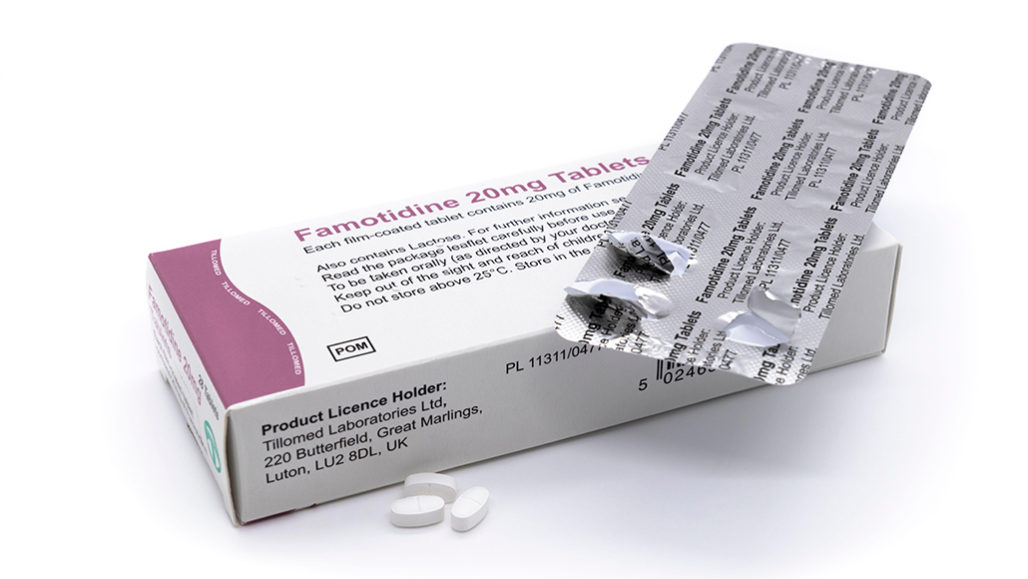Heartburn medicine doesn’t work as a COVID-19 antiviral - New findings don’t rule out the chance the antacid might help in other ways

An over-the-counter heartburn remedy probably won’t directly stop coronavirus infections, a new study suggests.
Anecdotal reports from China suggested people hospitalized with COVID-19 who were taking famotidine (sold under the brand name Pepcid) had better outcomes than people who took a different type of antacid called a proton pump inhibitor. But famotidine has no direct antiviral activity against SARS-CoV-2, the virus that causes COVID-19, according to preliminary results reported July 15 at bioRxiv.org.
Those findings, which have not been reviewed by other scientists yet, suggest famotidine won’t help prevent coronavirus infections or illness. But they don’t rule out that the drug might help in other ways, says Mohsan Saeed, a virologist at Boston University School of Medicine. “We’re not challenging that famotidine might help,” he says. “We’re saying that the mechanism of action is not antiviral.”
The result isn’t a complete surprise. “A compound of this nature having any role in infectious disease is kind of a head-scratcher,” Saeed says. But a couple pieces of evidence had hinted that it might help against the virus.
Besides the reports out of China, two studies using computer simulations of coronavirus proteins predicted that famotidine might dock with and inhibit important viral enzymes called proteases that help the virus replicate. Based on those findings, Northwell Health in the New York City area began a clinical trial to test the antacid against the coronavirus in people.
“We were kind of surprised, because there is no laboratory evidence to show that this compound might have some effect,” Saeed says.
The data that originally suggested benefits from famotidine aren’t strong enough to justify basing treatments on the drug, says Tobias Janowitz, an oncologist and biomedical scientist at Cold Spring Harbor Laboratory in New York, who was not involved in the study. “Everything that has been published so far cannot be considered evidence for clinical efficacy,” he says. That includes a small study Janowitz was involved in which also found hints that over-the-counter Pepcid might improve symptoms for some people diagnosed with COVID-19.
source:https://www.sciencenews.org/
Comments
Post a Comment